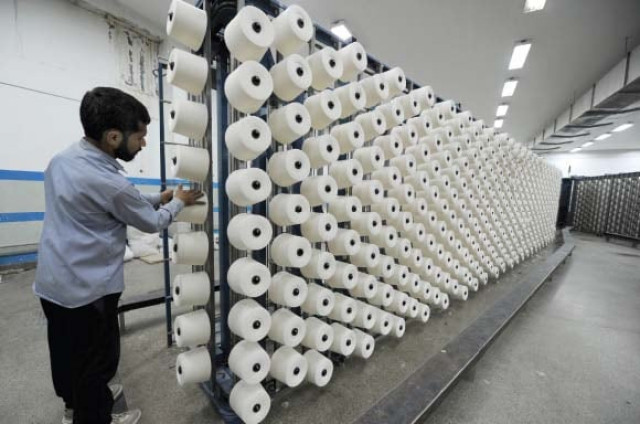Economic woes: Export boom a glimmer of hope or mirage?
Political and social unrest, law and order situation and inflation continue to plague growth prospects.

Economic woes: Export boom a glimmer of hope or mirage?
After a year of unemployment, textile worker Murad Ali is now back at work.
One of thousands laid off by textile bosses last year, the father of four is one of those to benefit from a surge in Pakistani exports in the current fiscal year.
Experts say rising global commodity prices, a government decision to prioritise power supply to industry and currency devaluation that has made Pakistani products more competitive, have fired an export boom.
Compared with the same period last year, the Trade Development Authority of Pakistan says textile exports such as silk rose 25.8 per cent and agricultural produce, such as basmati, rose 6.2 per cent from July 2010 to February 7 this year.
Bosses have rehired staff who were laid off, but Ali is only getting a third of the salary as a skilled garment worker that he used to command.
“I’mm earning less than last year. It is difficult to live a better life because of price hikes, but I’m happy,” Ali said.
He has re-enrolled his sons at school but his wife will continue to work as a maid. Money is too tight for her to go back to being a housewife.
The Asian Development Bank forecasts GDP growth for Pakistan of 2.5 per cent for fiscal year 2011 despite pressures from unprecedented floods in 2010, with a relatively modest rebound to 3.7 per cent for fiscal year 2012.
But behind the headlines, experts warn that the exports boom is a mirage that barely even papers over how ailing the economy really is in a country where suicide and bomb attacks have killed more than 4,200 people since 2007.
Pakistan suffers from a profound electricity crisis that restricts production to around 80 per cent of its needs – a situation that will only worsen as the temperatures crawl higher in the coming months.
The budget deficit has grown to 5.5 per cent of GDP, above a 4.9 per cent target for the current fiscal year to June 30.
To fund the shortfall, the government borrowed $4.4 billion from the central bank from July 1 to February 28, a move that worsened inflation, rather than raise taxes and cut spending as the IMF and World Bank would like.
Mohammad Sohail, head of the Karachi-based Topline Securities research and brokerage house, said the export boom would contribute to economic recovery, yet warned the gains were minimal.
“It is very fragile because the fiscal deficit is much higher than the target of 5.3 per cent because of the government’s heavy borrowing from the central bank,” he said.
“Furthermore, the overall security situation in Pakistan is very uncertain, which is making the foreigners and local investors wary all the time.”
Independent economist A B Shahid said rising international oil prices had hit the country’s economy hard, adding $4 billion to the oil bill.
Pakistan could have benefited more from 8-9 per cent export growth, he said, by exporting cloth in its value-added forms rather than raw cotton and yarn.
While Ali is content with life, he is also wary of uncertainties ahead.
“Life has become too insecure. Everyone is ill at ease. Let’s just wait and see.”
Published in The Express Tribune, April 11th, 2011.


















COMMENTS
Comments are moderated and generally will be posted if they are on-topic and not abusive.
For more information, please see our Comments FAQ